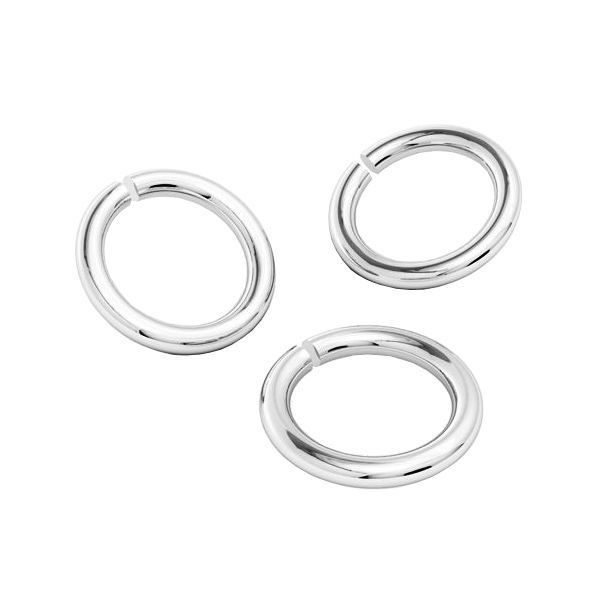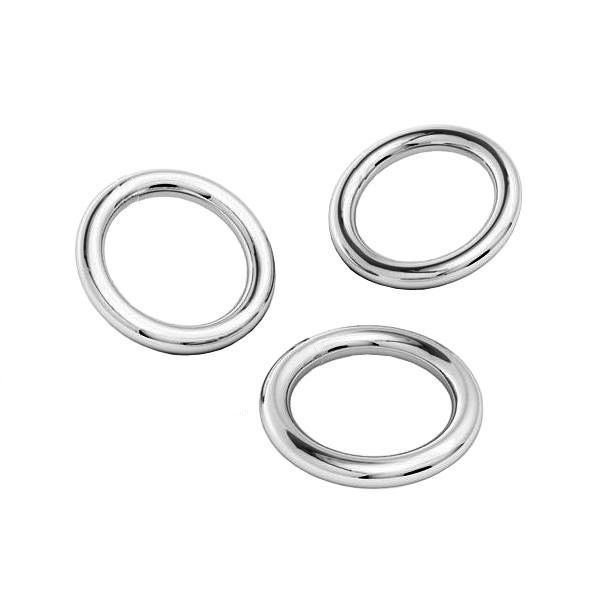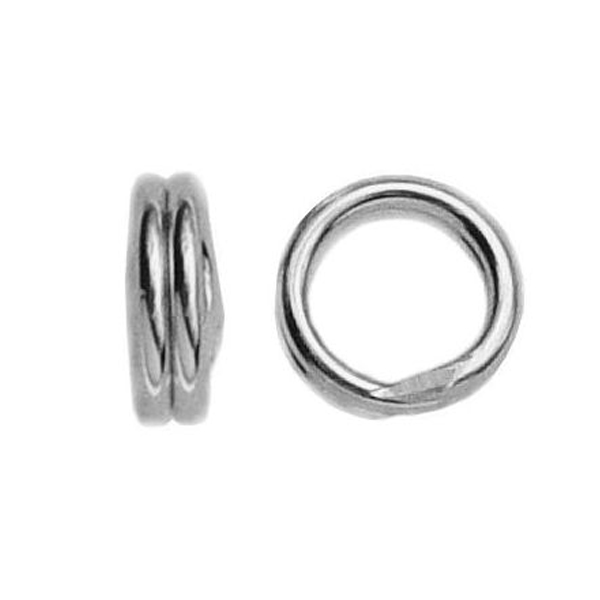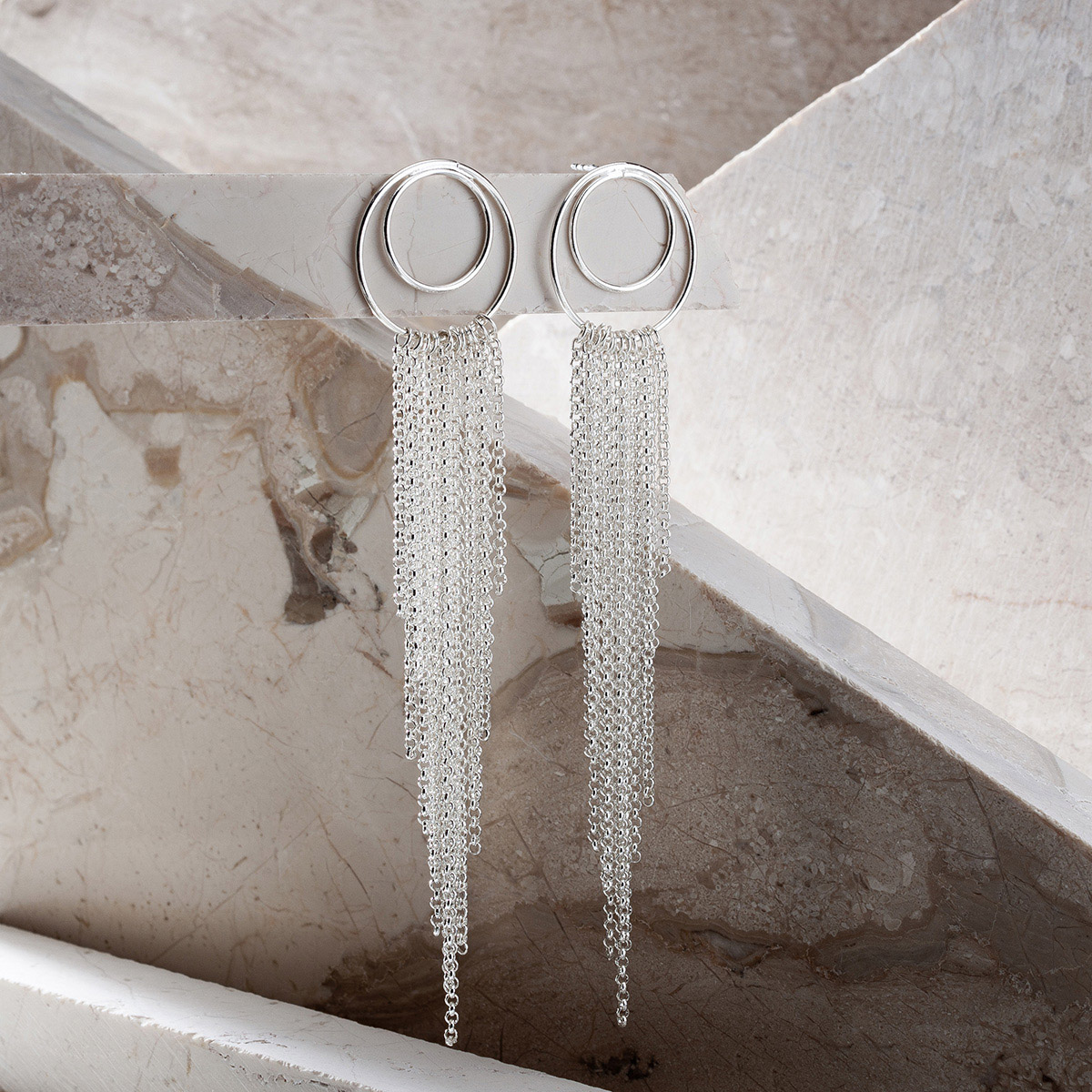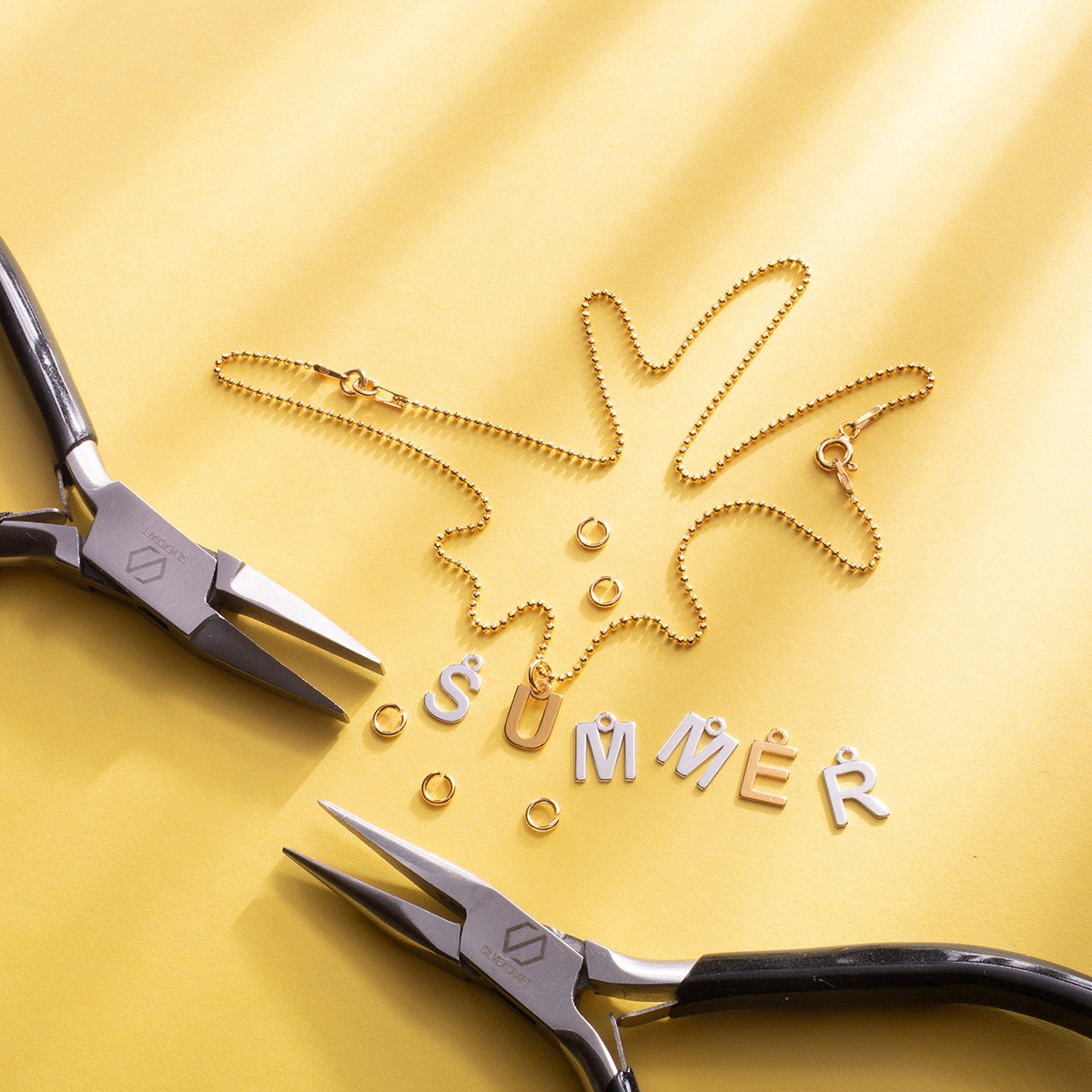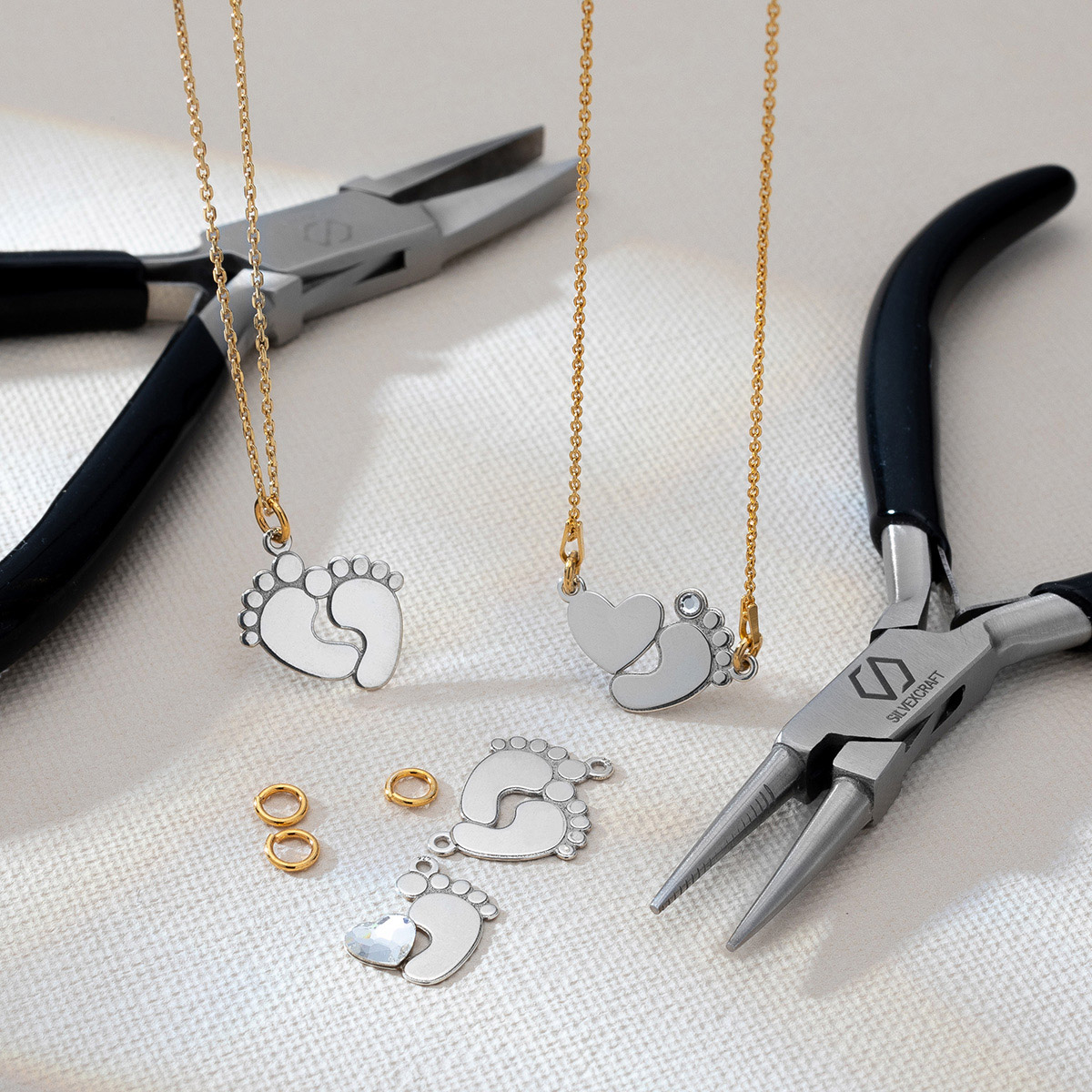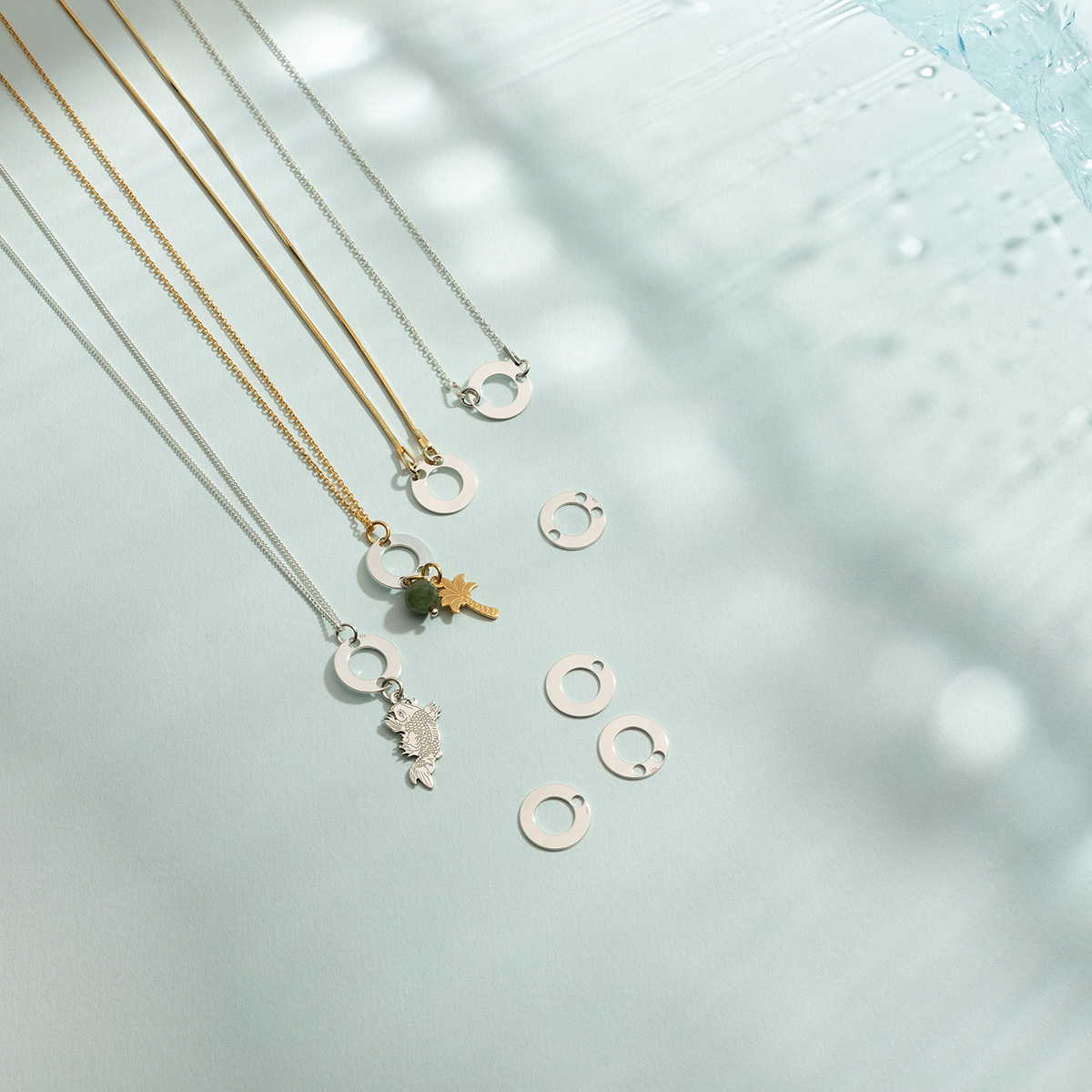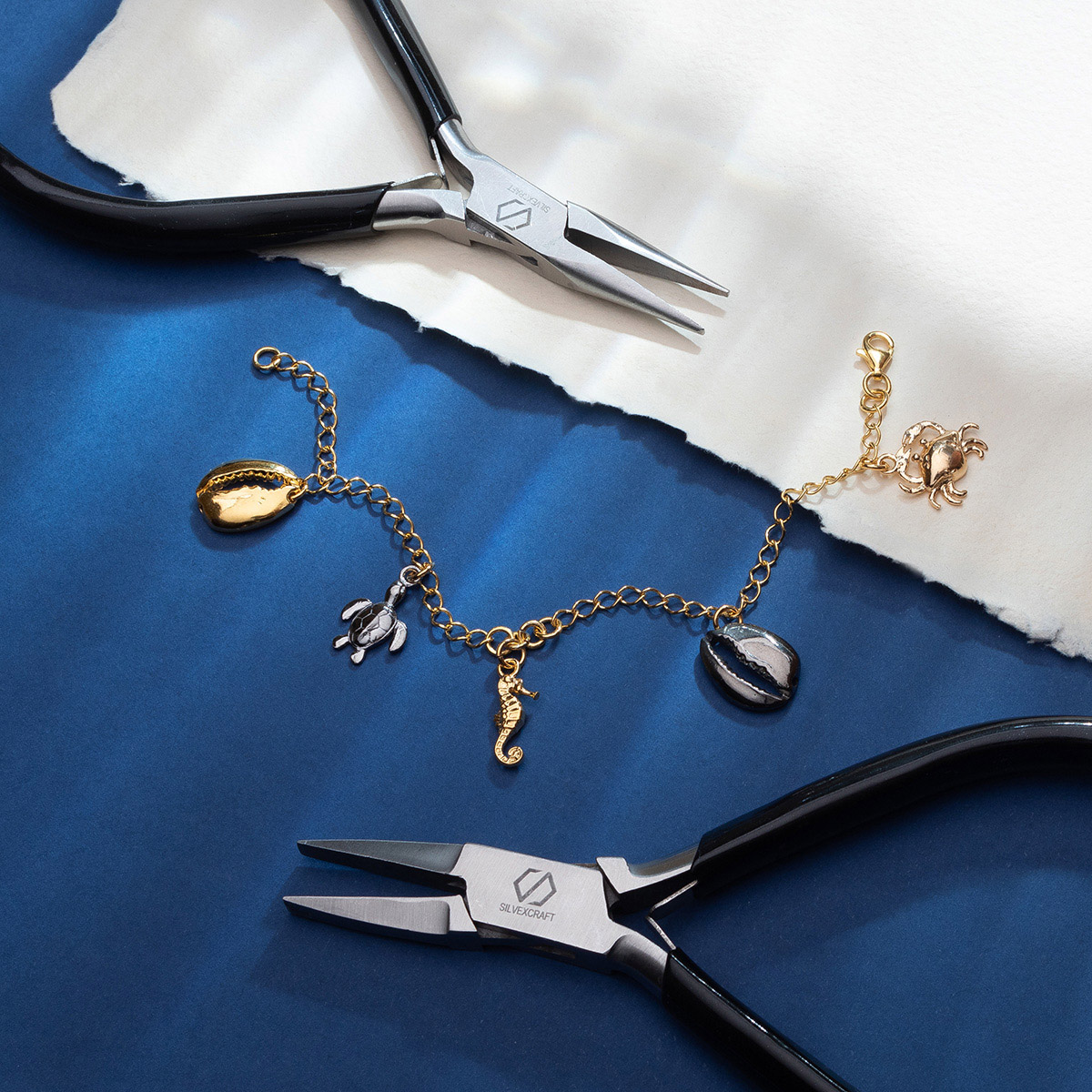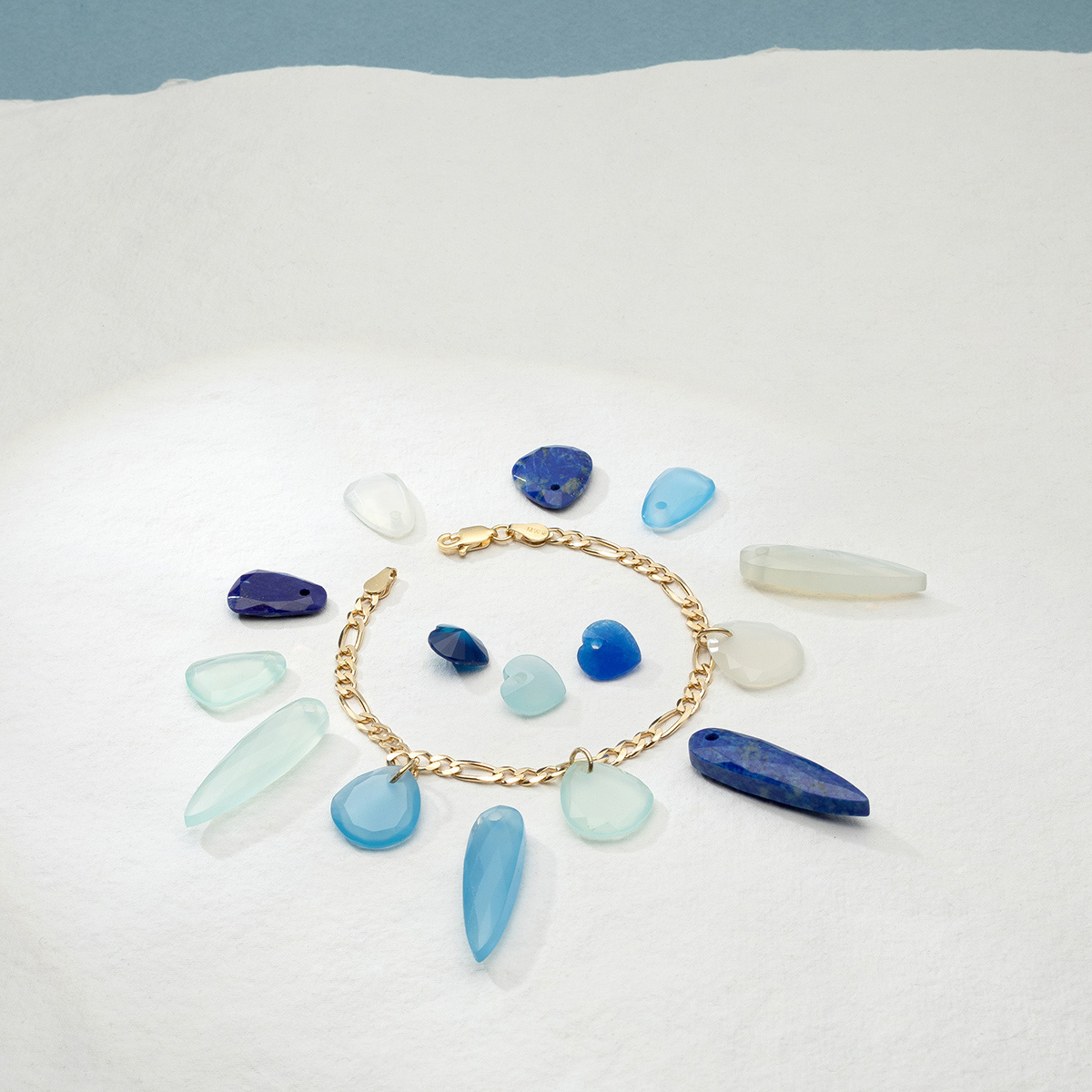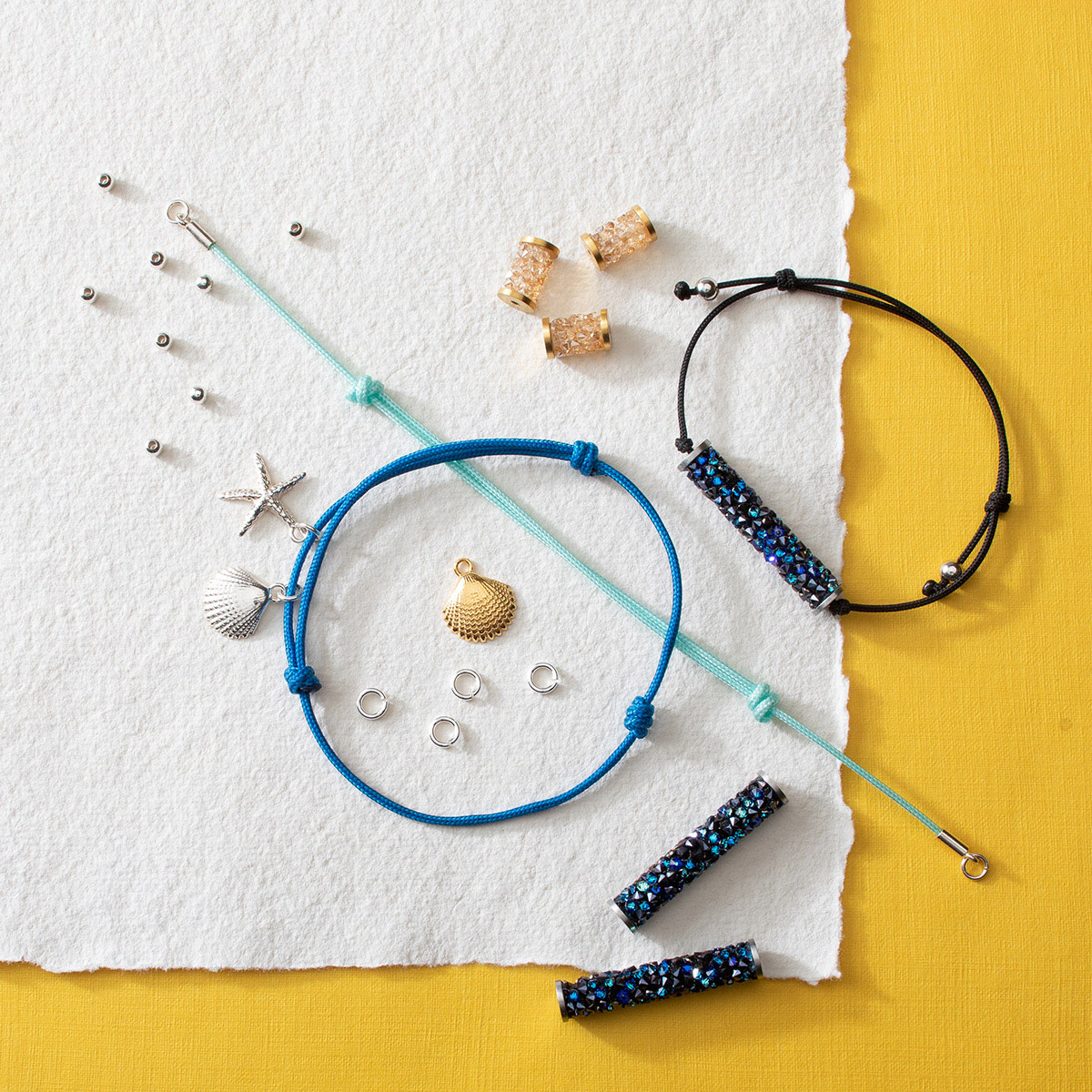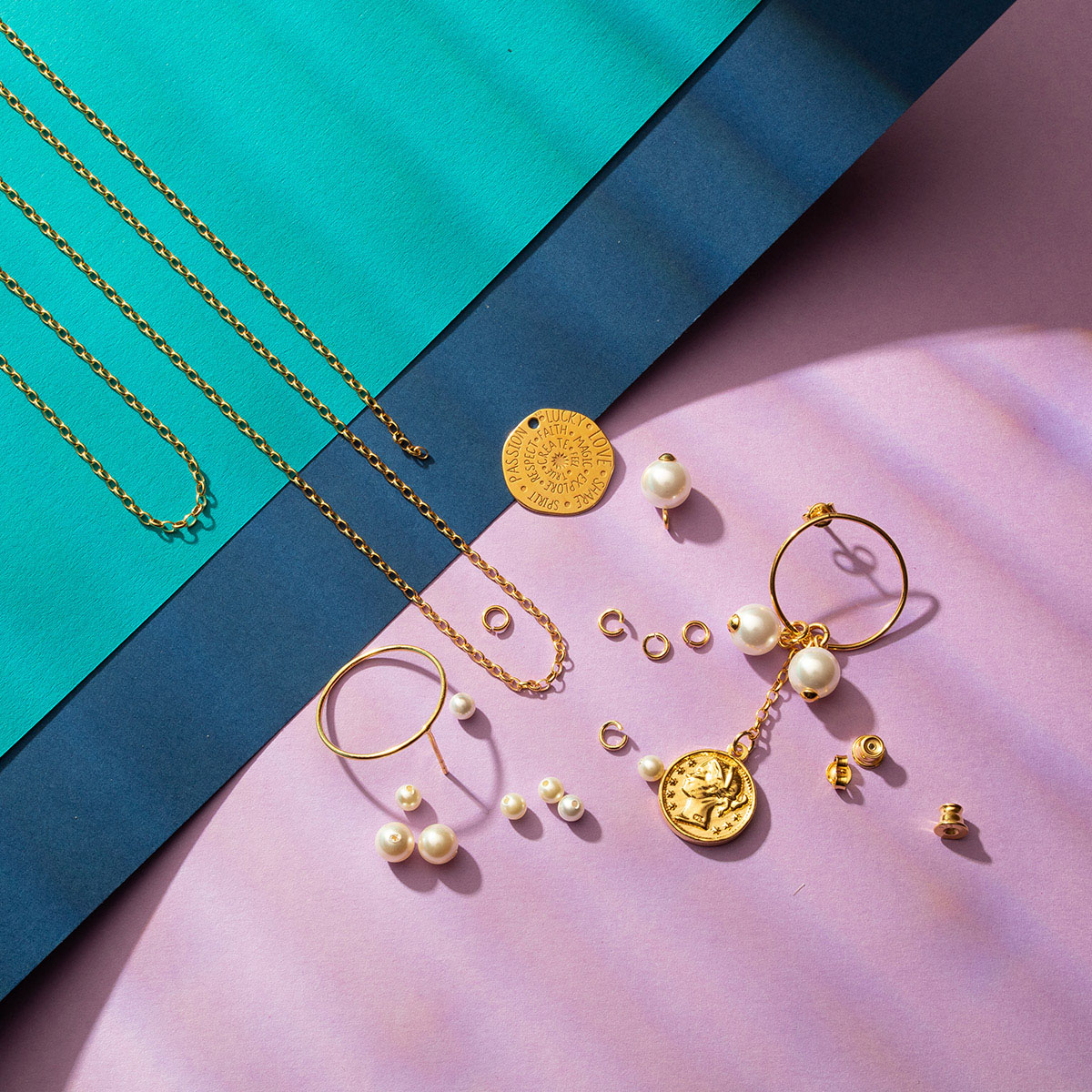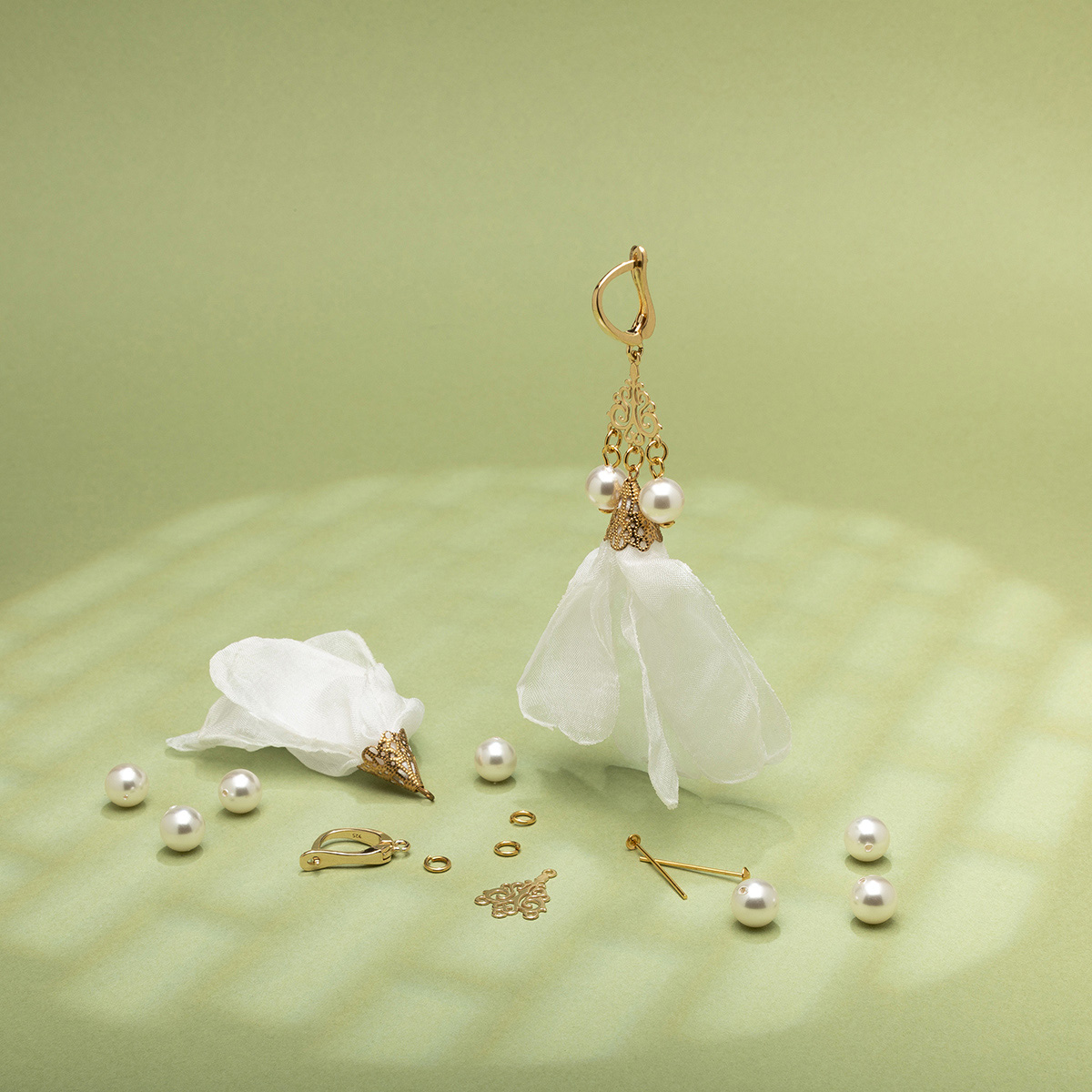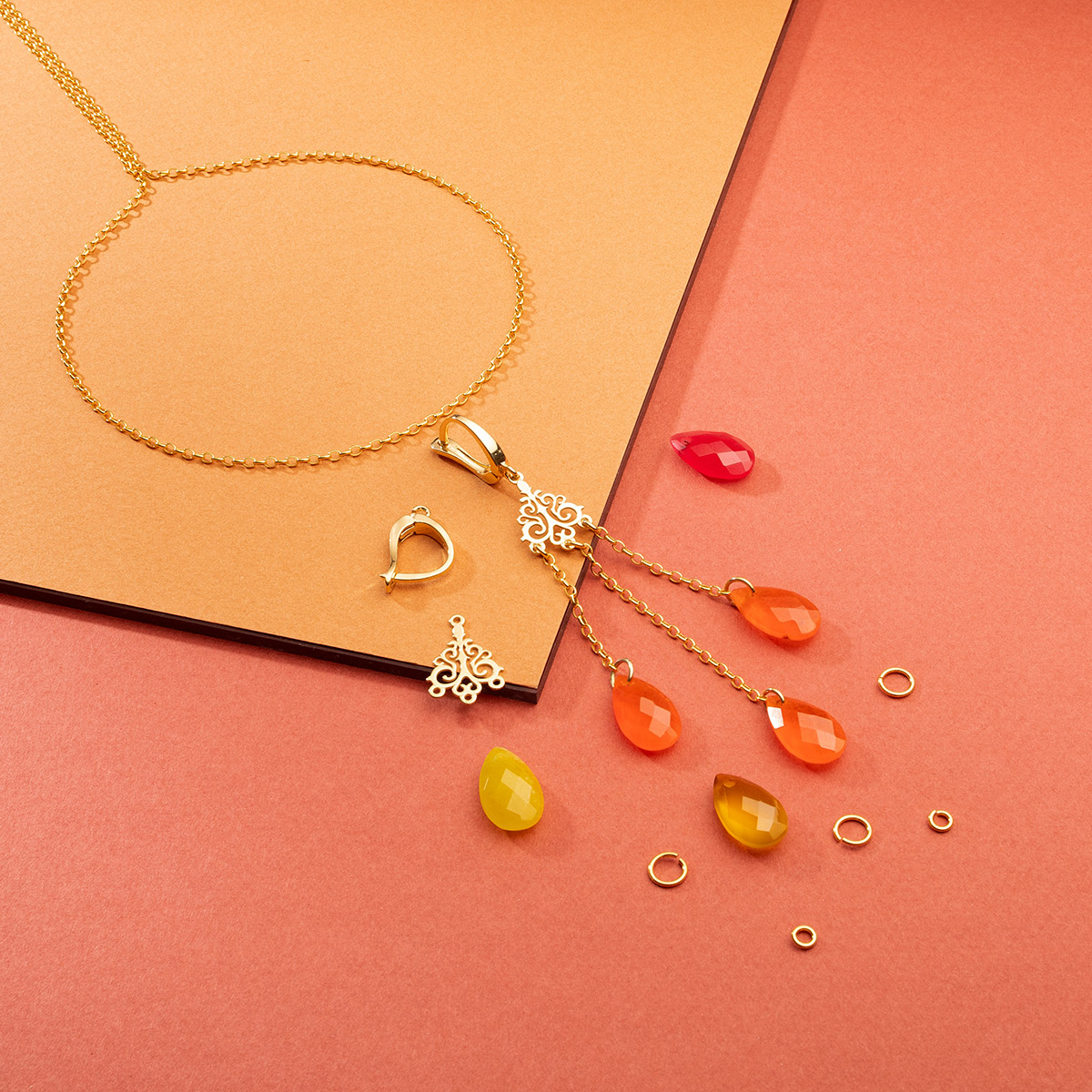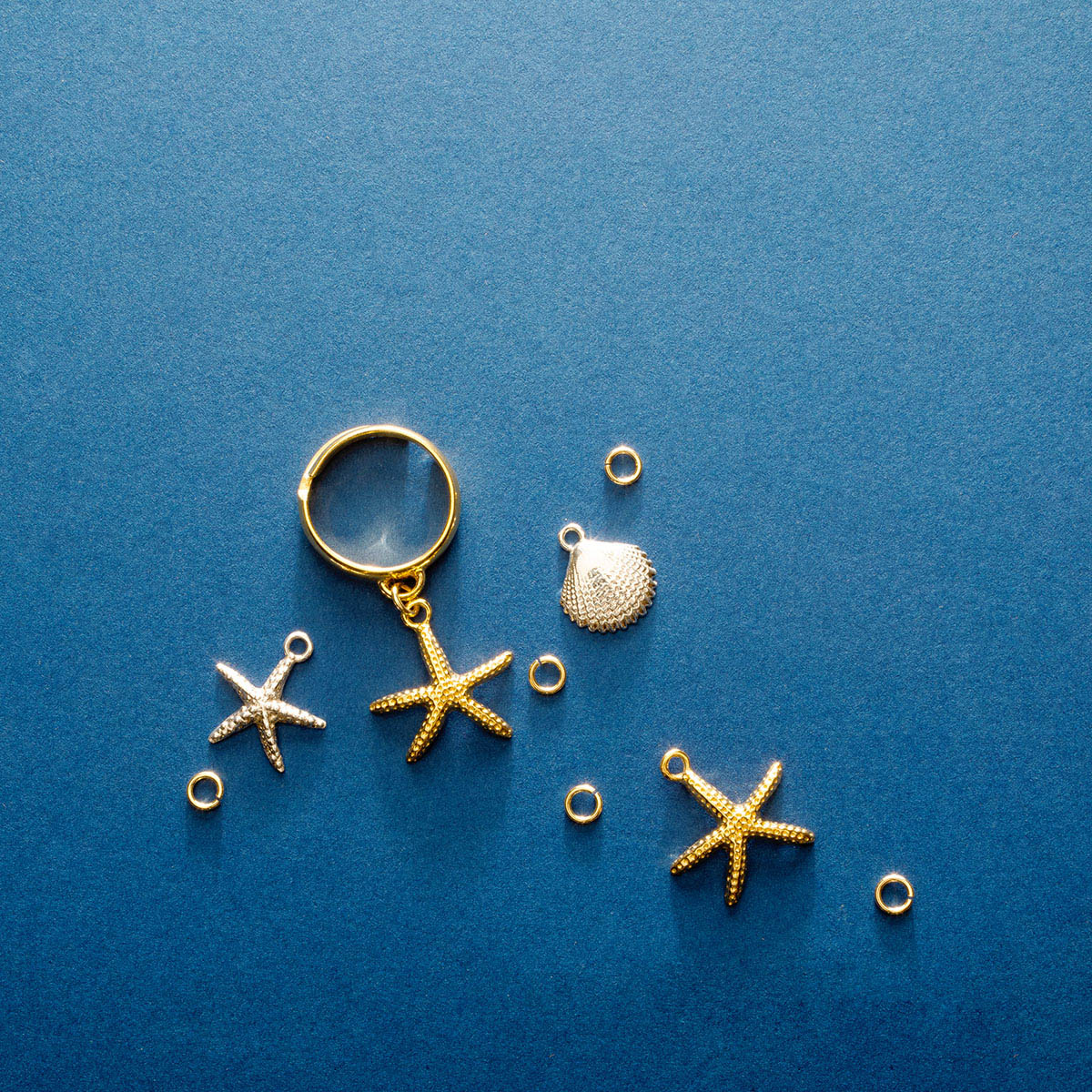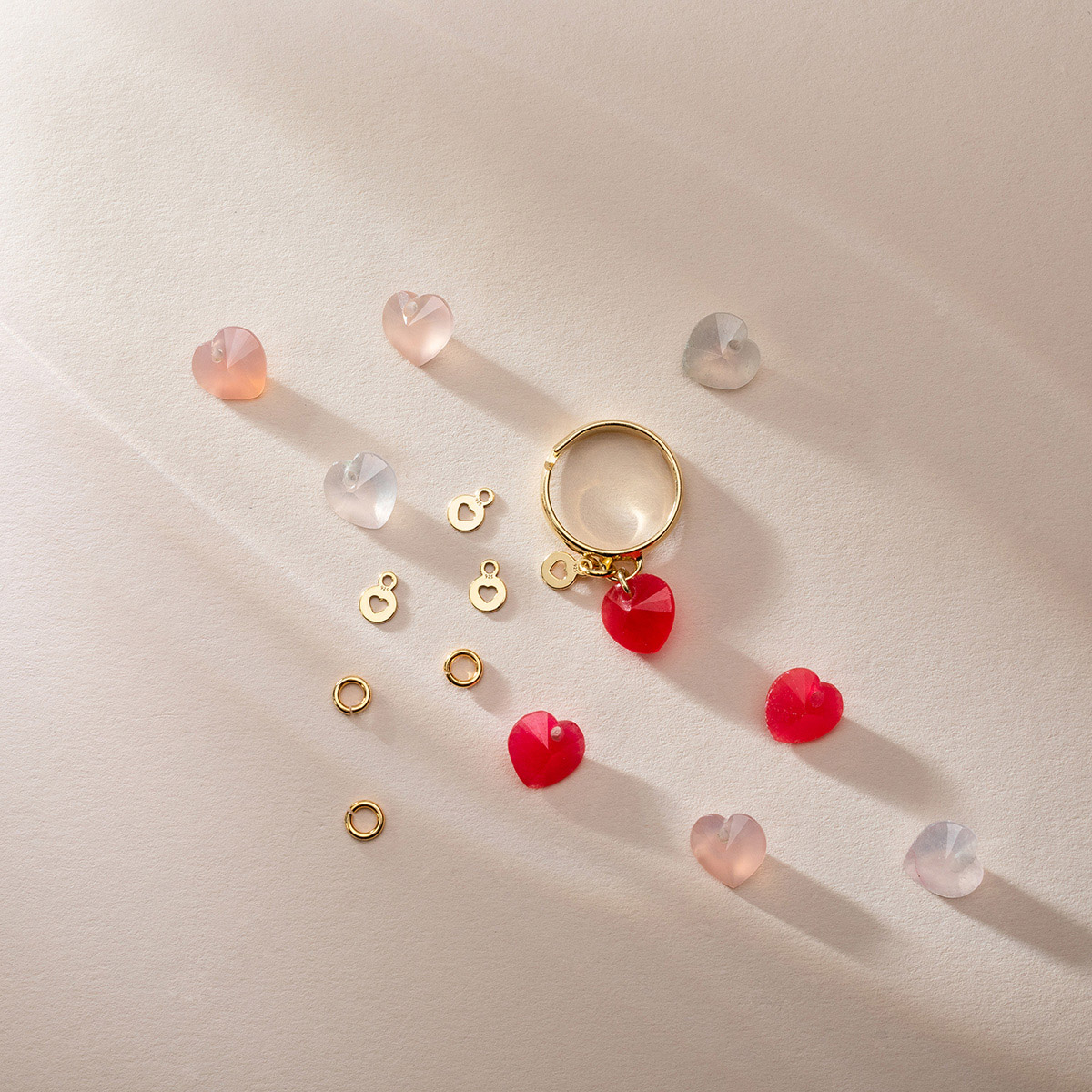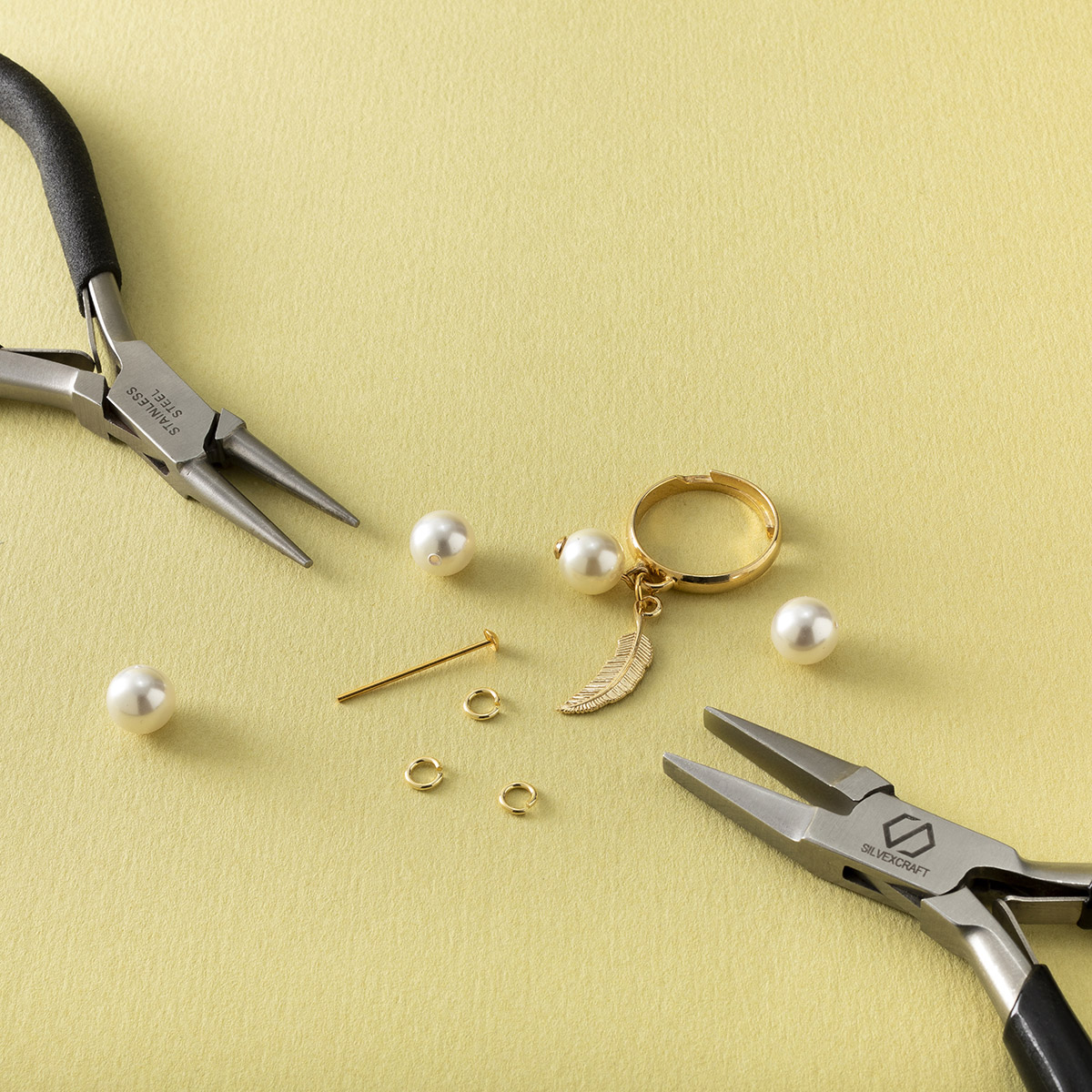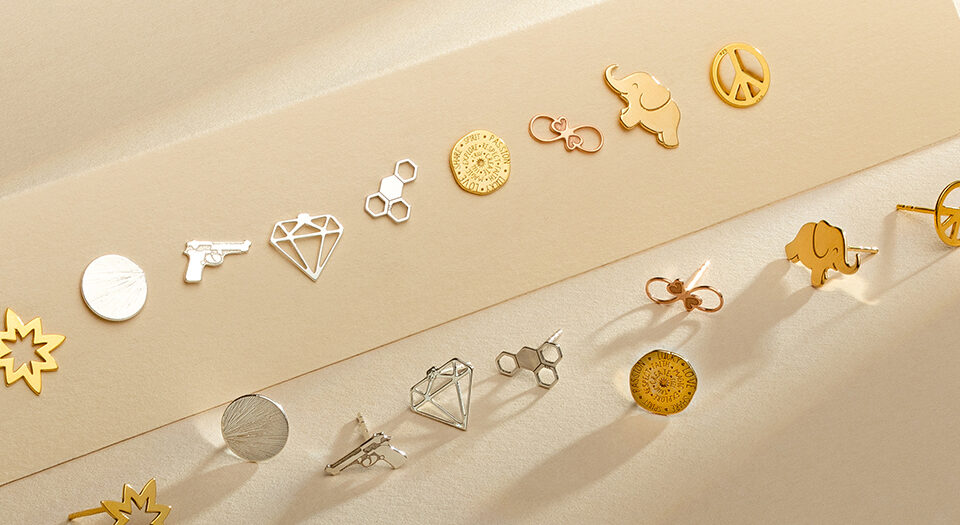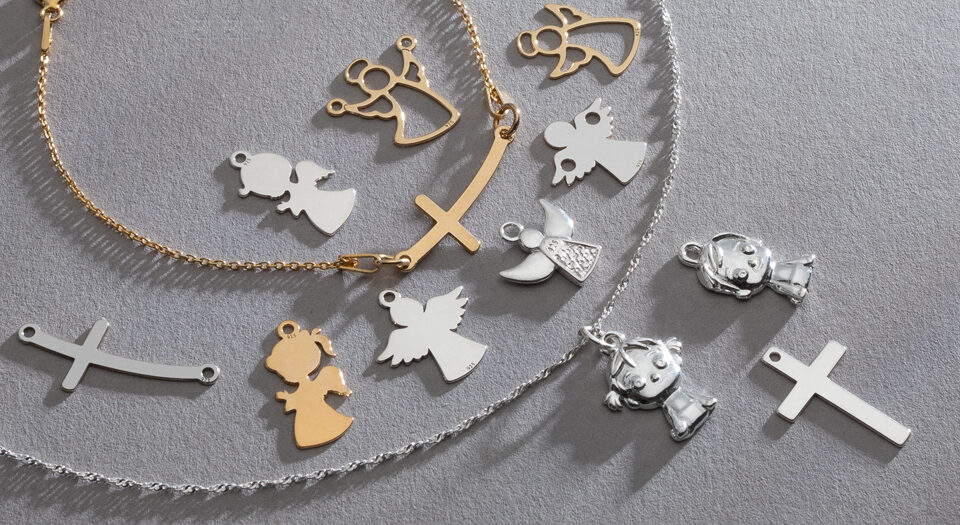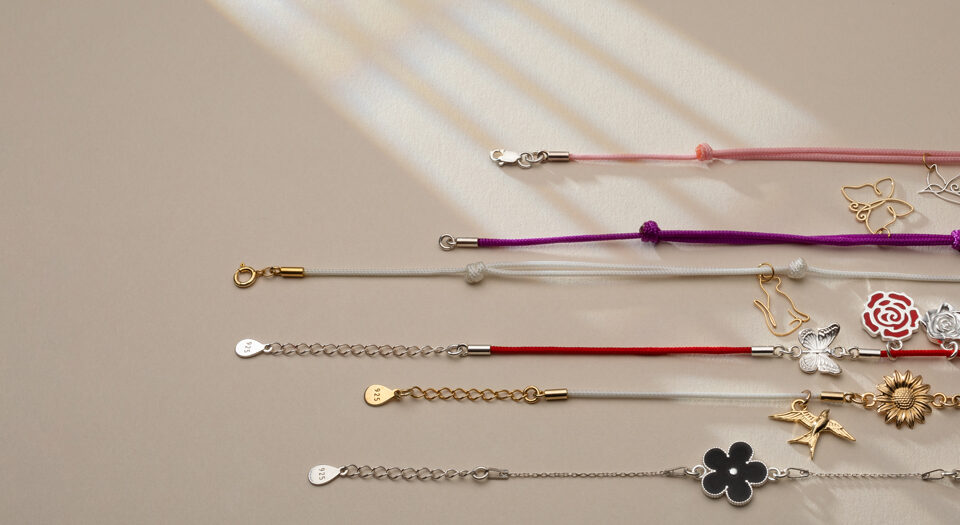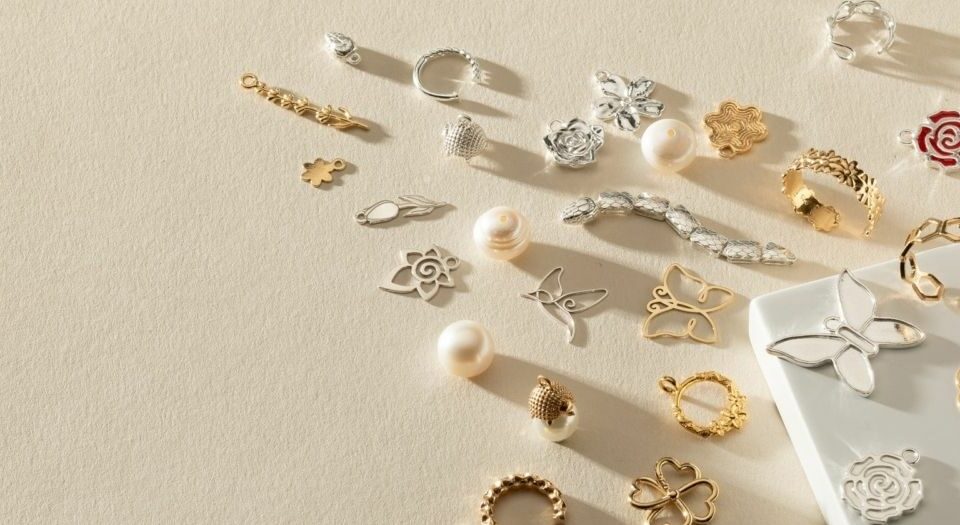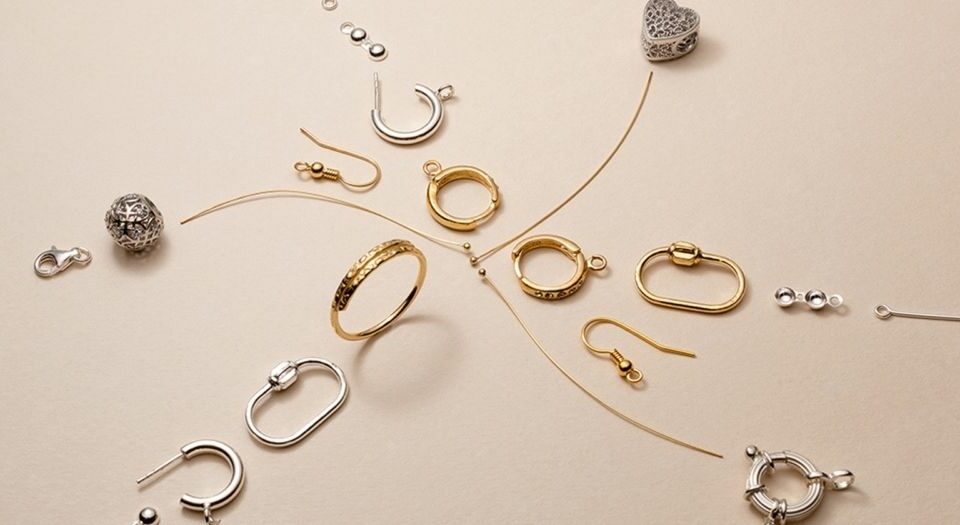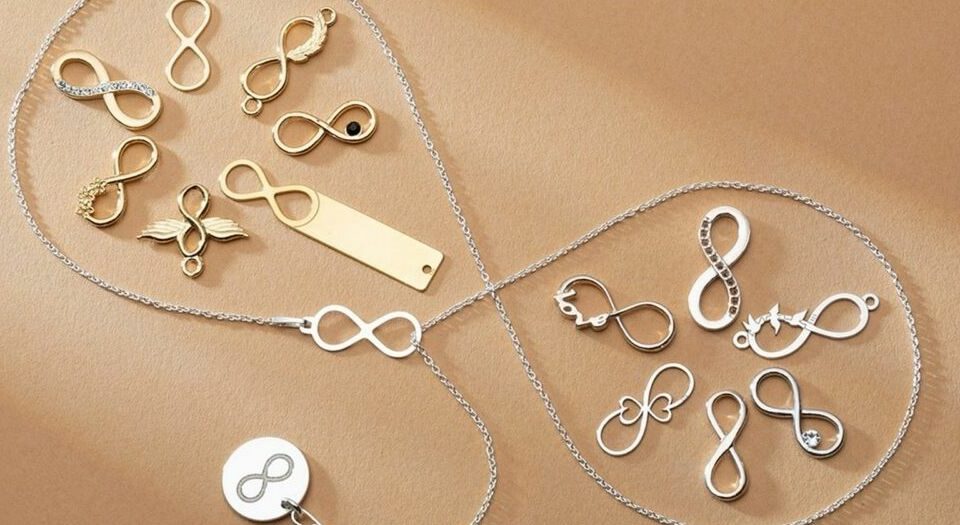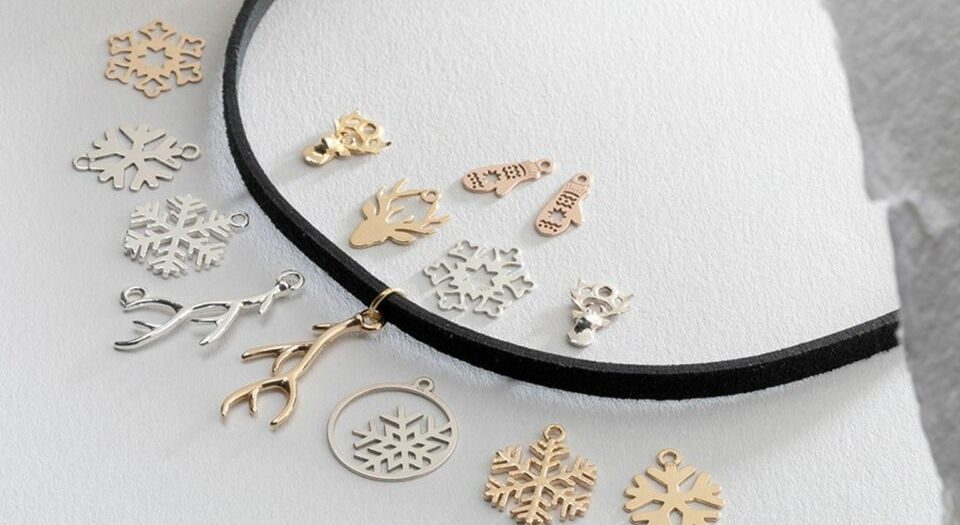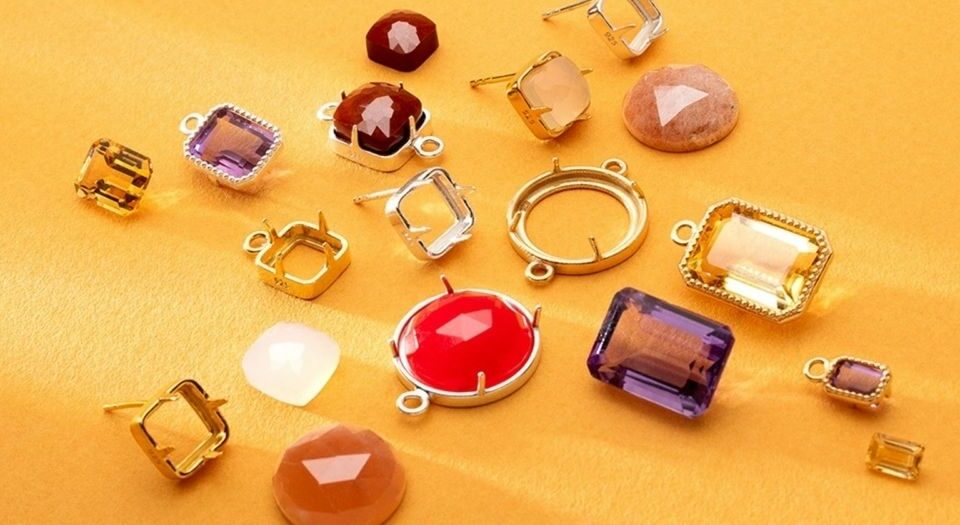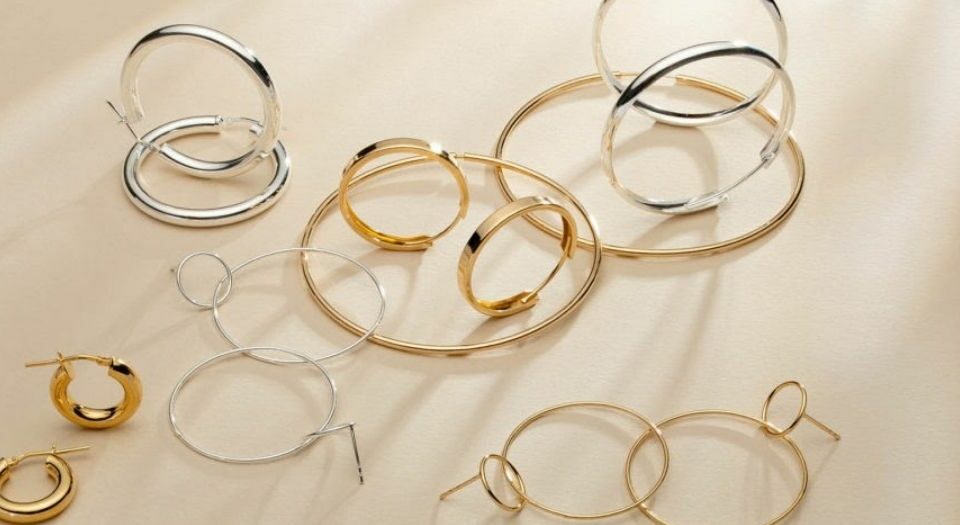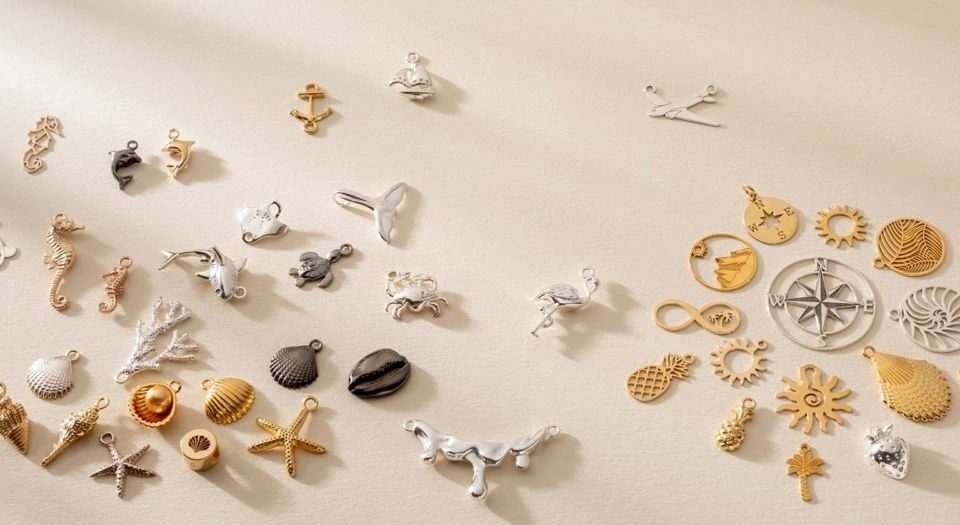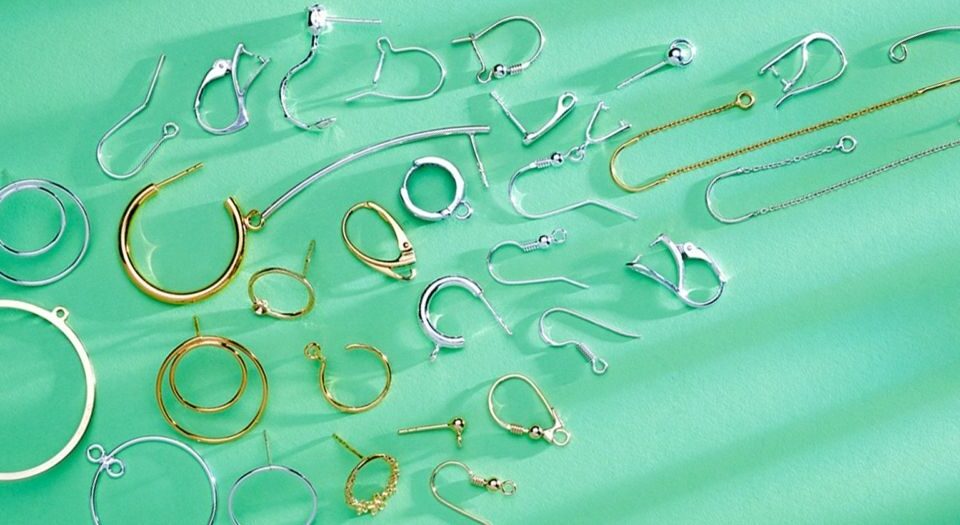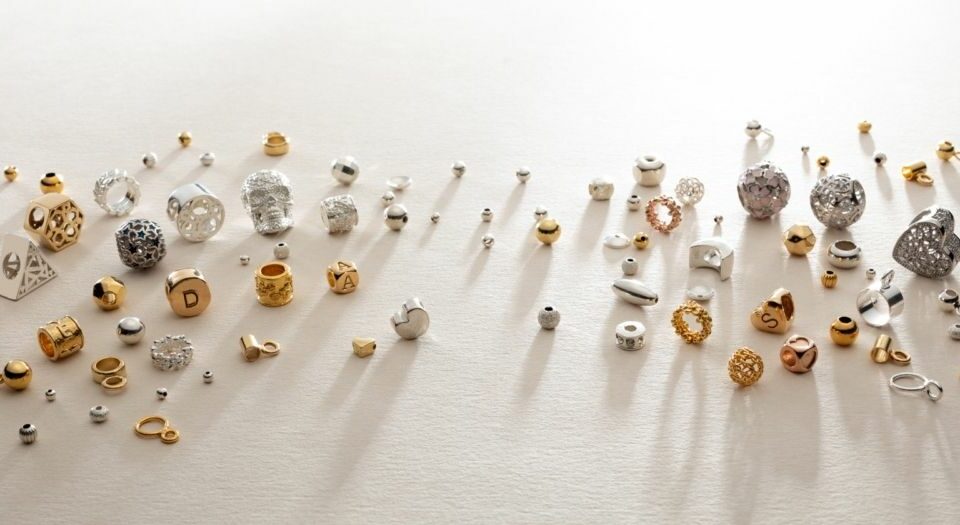- Contact us:
- +48 17 2300 400
- [email protected]
Sterling silver jump rings in jewellery making projects

Ear wires, studs, hoops or leverbacks? Find out which types of earrings are best for jewellery making
June 28, 2022
GAVBARI jewelry crystals
July 6, 2022Jump rings made of 925 silver are one of the smallest and at the same time one of the most desirable silver findings in the jewellery making process. This type of jewelry supplies are made of wires of various thickness, softness and cross-section. However, due to their application, the most popular jump rings are made of wires with a round cross-section. Silver semi-finished products in this category have different diameters ranging from 1 to 18.8 mm, but in our stock you will also find decorative variants, an example of which is a twisted circle with a diameter of 30 mm. These popular silver blanks offer a very wide range of applications in the creation of various types of jewellery for the neck, wrist, ankle, ears, waist, fingers, and all other products adorning the body. Regardless of the complexity of the accessory, there is usually a need to merge individual components together – and for this purpose jump rings are indispensable. We encourage you to familiarize yourself with the classification of them in our online store, and we also hope that our examples of jewellery created with the use of these practical findings will inspire you to design your own compositions.
Types of jump rings
The most common classification of jump rings is based on the method of their assembly. Among the products available on the market, we can find a wide selection of rings made of various metals, with different wire thickness and diameter, but the most popular among jewelry makers are open, closed, split and rings for soldering.
What is an open jump ring?
Basic jewelry pliers, preferably in the flat version, are useful for efficient installation of the rings. To open a jump ring, you need to twist its ends in such a way, as not to deform the round shape. To do this, at the cut point, gently bend one side down and the other up, not in one line – to avoid deforming a perfect circle which would be difficult to be twisted back to its original shape.
After opening, attach jump rings with the desired components, and then twist the ends to closed position, aligning and pressing them tightly. Open jump rings on our website are available with a wire thickness of 0.4 mm to 9 mm and a diameter of 1.5 mm to 10 mm.
What is a closed jump ring?
Closed rings, also called soldered rings, are most often placed between other jewelry findings containing open jump rings. Although these variants cannot be opened, they are widely used in jewellery making. Their main role is to strengthen the connection at some points of the product. The closed circumference of the finding prevents it from accidentally opening up and losing the decorations – as can be the case with open rings. Our stock includes closed jump rings made of silver wires with a thickness from 0.8 mm to 2.5 mm and diameter from 2.15 mm to 30 mm.
One of the techniques jewelry makers use when creating their products is soldering. It consists in connecting silver elements together under the influence of temperature, usually coming from the burner. In order to link the desired parts together, we need some kind of connector in the form of solder. Silver solder is available in our stock as a soldering wire made of 925 silver, 0.6 mm thick, which you can buy by the meter. As a manufacturer of silver findings for jewelry, we try to facilitate the work of our customers, which is why we created ready-made rings with solder. These components are unpolished and available in 0.5 mm and 0.8 mm wire thicknesses with an inside diameter of 0.32 mm and 0.4 mm. If these parameters do not meet your expectations, please contact us.
What are split rings used for in jewelry making?
Another category includes split rings, also known as double or spring rings. In this model, the wire precisely adheres to each other, and its ends are properly polished to secure it from catching on the textiles and irritating the skin. Spring jump rings are considered more difficult to install than open models, but they are more often used as a link in places that require a permanent connection. These include bracelets and necklaces that often catch on clothes, resulting in detachment, or even loss of jewellery. Our stock offers silver split rings with the following parameters: 3.5 x 5 mm, 4.4 x 6 mm, 2.55 x 4 mm and 3.1 x 3.1 mm.
The above-mentioned silver jewellery findings are the most popular among our customers, but the history of the jump rings does not end here. These practical jewellery making supplies are usually round, but we also offer oval jump rings in cut and soldered variants, as well as triangle jump rings in three versions. The triangle ones are also ideal as bails for stones, crystals or other decorations.
If you are looking for more decorative products in the shape of a circle, we suggest decorative twist jump rings with a diameter of 11 mm, 20 mm and 27 mm. These components will serve as extensions and connectors between the other components. However, you can also use it to create a pendant – by pulling it through a chain, or hoop earrings – by hanging them on earring hooks.
Another proposal is 0.8 mm thick – hard wire rings, which are an option that is slightly more difficult to assemble than open jump rings made of standard wires, but thanks to this, they are more durable and secure better against accidental opening.
In addition to high-quality silver jump rings, our stock also includes 585 gold jump rings, cut and soldered, with a wire thickness of 0.8 mm and 1 mm, and a diameter of 2.15 mm, 4.25 mm and 6 mm. If you create jewelry from this precious metal, we encourage you to familiarize yourself with the various offers from the category: gold findings AU 585 and AU 333.
If you prefer making silver jewellery, but want to diversify your collections with other colors, it is worth using galvanic coatings. Light, dark or rose gold plating will introduce colorful accents fashionable in recent seasons that will surely suit many of your customers preferences.
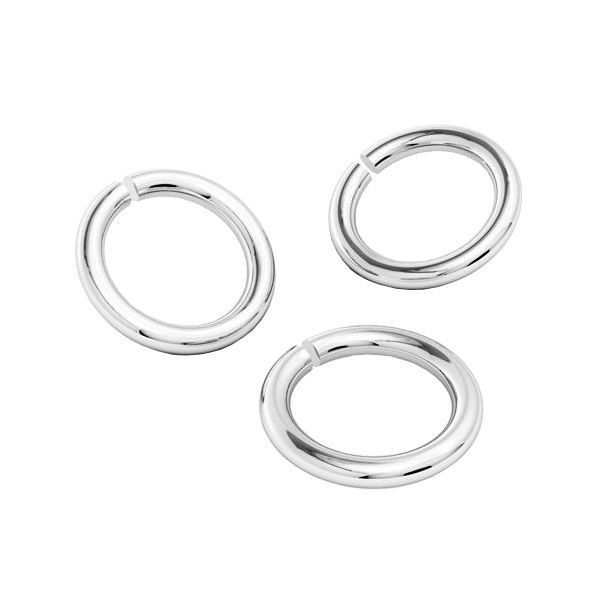
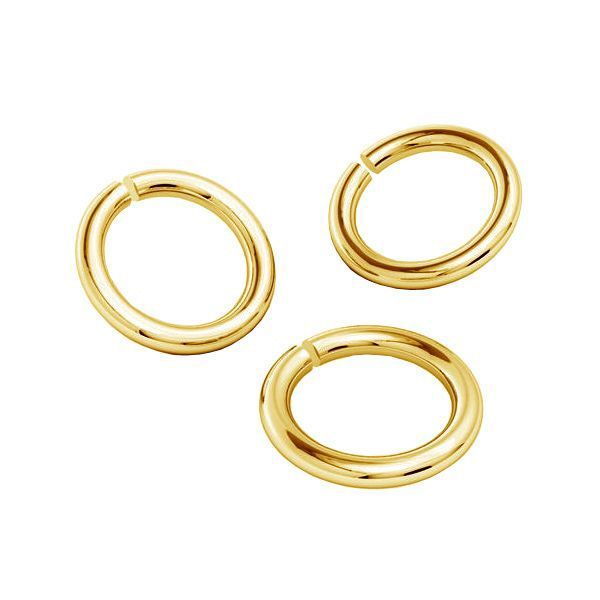
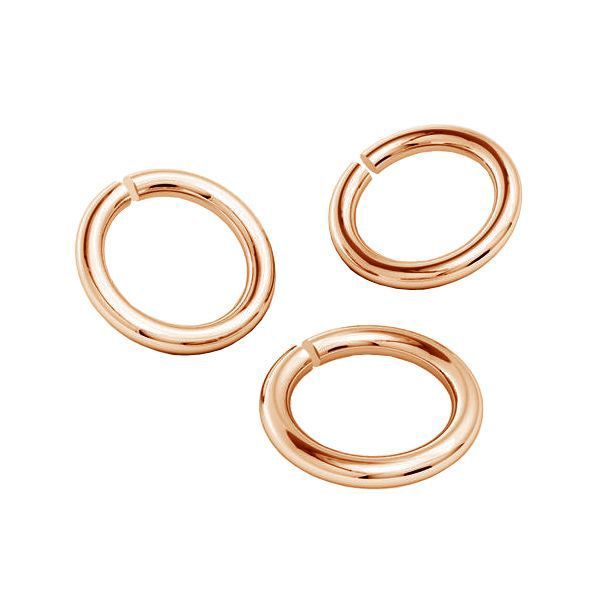
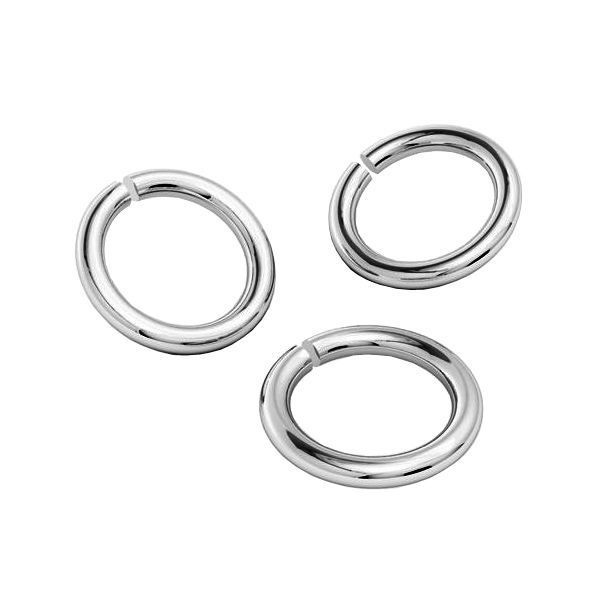
Designing jewellery consisting of numerous elements requires ordering all the components in the appropriate variants, so they all fit together. These choices depend on the materials from which you create accessories, the purpose of individual elements, their sizes, and often even style.
If you create gold jewelry – we recommend a wide selection of semi-finished products made of AU 585 or AU 333 gold. If you prefer silver jewellery, be sure to check out the wide range of our silver components. An alternative are also galvanic coatings available in the option of gold plating for silver in pink, light yellow and dark yellow, as well as rhodium or platinum. At this point, we also encourage you to create mixes of both precious metals and galvanic coatings.
When choosing jump rings, at the beginning you should consider whether you need open, closed, split or maybe rings for soldering? The wide selection and variety of linking supplies can sometimes make you dizzy, so in the case of this small finding, we encourage you to pay attention mainly to the thickness of the wire, from which it was made. The diameter of wires is closely related to the size of the hole through which it passes, so make sure that the jump ring is not too small and will correspond to its destination.
The second key parameter is the outer and inner diameter of the ring. Make this decision dependent on the number of elements connected with the ring, their size, weight, place, method of assembly, as well as the type of jewellery created and its purpose. For example, when designing similar earrings as project visible in the photo, you should make sure that the diameter of the rings:
- covers the hoops of the earring findings, which are 1 mm thick,
- fits into small links of the rolo chain, the hole of which is 0.7 mm.
What is a jump ring used for?
Silver jump rings are one of the most basic semi-finished products, but nevertheless the impression is that their use has no limits. They are commonly used in the form of links, thanks to which the jewellery gains a professional and aesthetic finish. They come in various diameters, so they can successfully replace jewelry bails, connecting pendants with a chain, string, cord, or any other base for a necklace. The size of the ring should be selected in such a way that it passes through the hole of the pendant and at the same time fits the necklace base inside its circumference, closing precisely. While in the case of necklaces, jump rings are an alternative to bails, while for mounting connector type pendants – these components turn out to be indispensable.
By purchasing the bases for necklaces or bracelets on our website, the chain already comes with jump rings attached. However, if you need a different size of the rings, you can always replace them. These small jewelry making supplies are also commonly used to attach other items to necklaces, as shown in the photos below. If you use a round pendant with holes, the ring on the one side serves as a link with the necklace, and on the other – as a holder for another pendant, such as fish, palm tree, beads or resin jewelry molds.
In recent seasons, massive bracelets, decorated with lots of pendants, charms and stones, dominate. Depending on the type of pendant mounting, we most often use charms spacers, lobster claw clasp and open jump rings. With their help, you can easily and quickly attach a pendant to a bracelet for charms. What’s more, you can change their arrangement or change their place with jewelry pliers at any time. In addition to attaching charms, rings are also used to finish the bracelet. Most often it is a combination of jewelry clasps with clamshell beads or jewelry end caps, completing the perimeter of the jewellery being created. Below are some examples of the use of jump rings in bracelets.
The current jewelry trends are dominated by massive, colorful and flashy accessories. The tendency have reversed, and very often it is jewellery that dominates clothing, not the other way around, as it was for many years back. Currently, precious metals are decorated not only with stones, crystals and pearls, but also with textiles, tassels, lace and feathers. Components made of this type of material also require connection with other elements, and jump rings will be perfect for this purpose. We are used to the fact that we usually thread them through holes in metal blanks. However, due to the availability of various sizes of wires, we can freely combine them and even thread through the above-mentioned materials, making decorations ready to be composed with other components, such as, for example, earring supplies. Thanks to this method, you will create long dangling earrings, with a chain and other pendants – see examples shown below. The rings are also a phenomenal choice for making products such as long cluster or modular earrings.
Properly selected rings provide freedom of moving details, which is why they are also eagerly used in making rings with pendants. By choosing the charm ring and laser-cut or cast silver pendants, you will create jewellery perfect for spring and summer, suitable for both everyday and evening outings. What’s more, the easy and quick assembly of the product means that they can be replaced depending on the season, occasion or outfits. Below we present a few examples based on the rings with charms attached, but we are sure that according to the tastes of your customers, you will create even more interesting combinations.
Above we have presented the most common use of these small findings, but there are many more possibilities. Jewelers and craftsmen also use them to create layered necklaces – connecting several chain weaves, as well as more elaborate compositions of chains decorating the waist. Some people go a step further and assemble DIY chains from individual links according to their own project.
However, the chainmaille technique, dating back to the medieval times, is considered one of the most time-consuming and demanding method using jump rings. Back then, it was used to create armor – called chain mail. They were created by joining rings together in more or less complex weaves. Today, this technique has been used for jewellery making, thanks to which phenomenal ornaments for the neck, ears and wrists are created. The most popular weaves are the chainmaille byzantine, also known as the royal, as well as European, Persian and Japanese patterns. When creating chainmaille jewelry, depending on the designer’s idea, rings of the same size or different, of the same color or of a mixed color are used. Additionally, you can place gemstones, beads, crystals, pearls and other decorations into the weaves. Although this technique requires a lot of time, patience and precision, the end result rewards all the efforts put into making jewellery with a history in the background.
The variety of both wholesale and handicraft projects is very often based on the same or similar methods of assembling and connecting elements, so it is difficult to imagine jewellery making without these practical components. The multiplicity of jewellery designs requires the use of various variants, therefore, as a wholesaler of silver findings, we offer various thicknesses, sizes, shapes and colors, so that every jewellery maker can find the required models to freely implement an expected project. The jump rings, as well as the rest of the jewellery supplies in our offer, are made of the highest-quality, hypoallergenic, nickel-free 925 silver. For this reason, you will be sure that their use in your collections is safe, and you can successfully dedicate them both to people allergic to this element and children.
Find out more:
- Watch video showing how to open jump ring: How to make silver jewelry with Swarovski
- Get inspired with jewellery making using 3D silver jewelry castings
- Discover jewelry findings with symbolism: Zodiac silver pendants in jewelry
If you found this article valuable, we would be grateful if you like, share with others, or comment, which will be an energy booster for us to write more articles
Thanks and Have a Nice Day!
Follow us:
 925CRAFT(@925craft)
925CRAFT(@925craft) Making jewellery with 925CRAFT
Making jewellery with 925CRAFTRelated posts
Popular jewelry motif – part 1
How to make jewelry for communion
How to make string bracelets – a guide for jewelry makers from 925CRAFT
Jewellery supplies for jewellery production, what are they?
Infinity bracelets and clover bracelets – how to make bracelets with symbols
Jewelry trends for winter 2023
How to use silver hoop earring findings – part 1
Sterling silver spacer beads and balls


